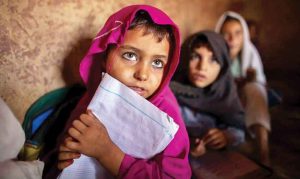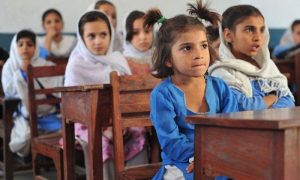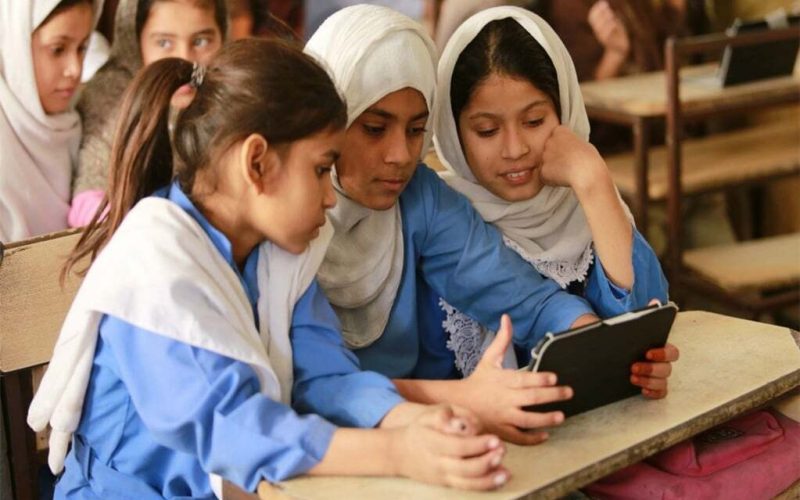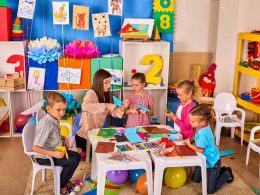Introduction:
Step into the realm of education reform with Ayesha Khan, an advocate for inclusive education and social change in Pakistan. Empowering Every Child Ayesha sheds light on Sindh’s pioneering efforts to introduce a non-formal education system, aiming to provide educational opportunities for out-of-school children and foster a more equitable society.
Understanding the Out-of-School Children Challenge:
In Sindh, as in many regions globally, thousands of children are deprived of their right to education due to various socio-economic factors. Understanding the root causes of this challenge is crucial for devising effective solutions to ensure that every child has access to quality education.
The Need for Non-Formal Education:

Traditional formal education systems may not cater to the needs of all children, especially those who face barriers to enrollment and attendance. Non-formal education offers a flexible and inclusive alternative, tailored to the unique circumstances of out-of-school children.
Sindh’s Vision for Inclusive Education:
With a commitment to education for all, Sindh’s government has embarked on a journey to establish a non-formal education system that reaches marginalized and underserved communities. This initiative aligns with the province’s broader goals of achieving universal primary education and reducing educational disparities.
Key Features of the Non-Formal Education System:
Sindh’s non-formal education system prioritizes accessibility, flexibility, and relevance to learners’ lives. It offers accelerated learning programs, flexible schedules, and community-based learning centers to accommodate diverse needs and ensure meaningful educational experiences.
Community Engagement and Stakeholder Collaboration:
The success of Sindh’s non-formal education initiative hinges on active engagement with communities, parents, teachers, and local organizations. Collaborative partnerships foster ownership, accountability, and sustainability, empowering communities to drive positive change in education.
Challenges and Solutions:

Implementing a non-formal education system comes with its own set of challenges, including resource constraints, infrastructure limitations, and cultural barriers. Through innovative approaches, such as mobile learning initiatives, teacher training programs, and advocacy campaigns, Sindh aims to overcome these obstacles and build a resilient education ecosystem.
Measuring Impact and Success:
Monitoring and evaluation mechanisms are essential for assessing the impact and effectiveness of Sindh’s non-formal education system. By tracking key performance indicators, such as enrollment rates, retention rates, and learning outcomes, policymakers can gauge progress and make informed decisions to optimize program delivery.
Visual Table for Key Points:
| Key Points | Description |
|---|---|
| Out-of-School Children Challenge | Overview of the challenges faced by out-of-school children in Sindh and the need for inclusive education. |
| Importance of Non-Formal Education | Discussion on the significance of non-formal education in addressing barriers to education access. |
| Sindh’s Vision for Inclusive Education | Description of Sindh’s commitment to establishing a non-formal education system for marginalized children. |
| Key Features of Non-Formal Education | Explanation of the essential components and features of Sindh’s non-formal education initiative. |
| Community Engagement and Collaboration | Importance of community engagement and stakeholder collaboration in the success of the initiative. |
| Challenges and Solutions | Identification of challenges and innovative solutions for implementing the non-formal education system. |
| Measuring Impact and Success | Discussion on monitoring and evaluation mechanisms for assessing the impact and success of the initiative. |
Through her analysis, Ayesha Khan highlights the transformative potential of Sindh’s non-formal education initiative in providing marginalized children with access to quality education and empowering communities to build a brighter future. As Sindh takes bold steps towards inclusive education, the journey towards education equity and social justice gains momentum, one child at a time.









